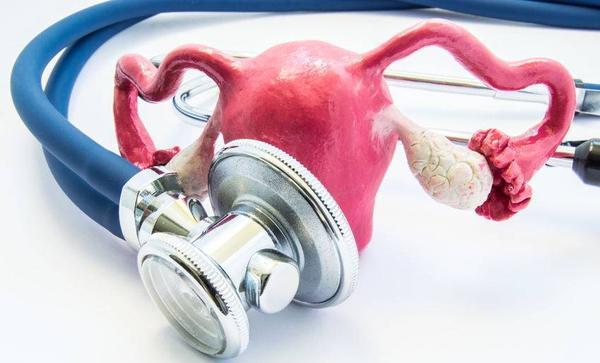"Menopause" is a very sensitive and heavy topic for many women. The reason for this is that many women have a reverse understanding of the relationship between menopause and aging, and they mistakenly believe that menopause is the beginning of aging and it will accelerate the aging process. But in fact, menopause does not mean the arrival of aging or the acceleration of aging, it is actually a symptom of aging!

The organ to be mentioned here is the "ovary", which is the most important reproductive organ for women, and its functions are ovulation and secretion of estrogen. However, unlike the "testicles" of men's sexual organs, ovarian function does not accompany women for life, it begins to mature from puberty, and then remains stable for decades, but eventually aging and loss of function.
When a woman enters the stage of 45-55 years old, the follicles in the ovaries may be exhausted, or the remaining follicles lose their response to gonadotropins, and the follicles no longer develop and secrete estrogen, which cannot stimulate the metabolism of the uterine lining, and eventually develop into menstrual disorders and menopause. Therefore, menopause is a symptom of aging, not a signal of the onset of aging.
Under normal circumstances, the vast majority of women in our country have menopause before the age of 50. If you are more than 60 years old and have not had menopause, especially if you intervene in menopause in a human way, such as taking a large number of estrogen drugs or products, not only does not have any benefit to the body, but also increases the chance of a cancerous mutation, it is: ovarian cancer.
So the question is, why is it related to ovarian cancer after the late passage?
The so-called ovarian cancer refers to the malignant tumor that appears on the ovary, and among all ovarian cancer patients in China' clinic, 90 to 95% are primary ovarian cancer. Early diagnosis of ovarian cancer is particularly difficult due to the lack of symptoms in the early stages of ovarian cancer, the fact that even symptoms are not typical, and the role of screening is very limited.
Nearly 60 to 70% of ovarian cancers are diagnosed, they have reached an advanced state, and the treatment effect of advanced stages is not ideal. Therefore, although the incidence rate of ovarian cancer is second to cervical cancer and endometrial cancer, the mortality rate exceeds these two, ranking first in gynecological cancer, which is a malignant tumor that seriously threatens women's health.
So far, the cause of ovarian cancer has not been fully determined clinically, but there are a large number of studies that show that women's menstruation comes too early and dies late, which will increase their chances of ovarian cancer. The reason for this is because women are slow to menstruate, which means that the ovaries still have the ability to ovulate, and ovulation that lasts for many years will lead to continuous damage and repair of the surface skin of the ovaries. During the repair process, cells may have DNA replication errors;
Not only that, as people continue to grow older, the function of various organs in the body itself will decline, especially the decline in immune function. The decline in immune function means that the immune system cannot recognize and clear the mutated cells normally, which also invisibly increases the chance of cancer. Therefore, it is clinically apparent that the later the menopause, the greater the chance of ovarian cancer in the future.
All in all, menopause is a physiological process that every woman must go through, and menopause at the normal age is a manifestation of good health. On the contrary, if you have menopause before the age of 40, or if you are more than 60 years old and still have no menopause, this is a sign of endocrine abnormalities, which should be paid more attention to and actively seek medical treatment for relevant screening.